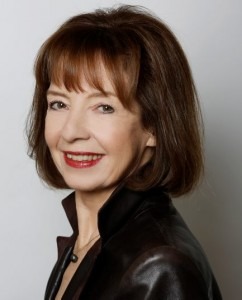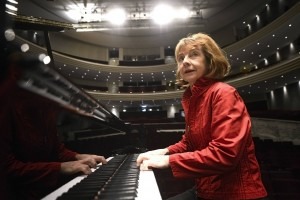
Credit: http://static.ladepeche.fr/
Interlude: Your first recording in 1988 was of Satie and you’ve returned to him again and again, with recordings in 2000, 2002, 2004, 2006, 2008, and 2013. What is it about Satie that appeals to you?
AQ: It all started with a proposal from Virgin Classics. I was not personally involved with Satie’s music, but gradually discovered the charm of his music. The success of the first CD led to proposals from other record companies, which I accepted with one condition: I would continue if I could also record all of Ravel’s solo music, which was a fantastic artistic adventure. Satie is not vital to me as Mozart or Ravel, but he possesses a voice, sign of genuine talent.
Interlude: How has your approach to Satie evolved from 1988 to today?
AQ: Satie music is for me very open and gives a great freedom to the player. I don’t know if I have evolved, I feel that his music is familiar and I tend to play it following my mood. It is a poetic approach, not musicological.
Interlude: Your Hong Kong program is called “Voyage.” Can you tell us how you conceive of this Satie-based program?
AQ: I wanted to play around him, performing pieces by other composers of the same period. Most of them have been totally forgotten, and I happily discovered some jewels to perform. I thought that the popular fame of Erik Satie could give a hand to his colleagues, who are now much less recognized.
Interlude: What do you find is the difference between your solo work and your chamber music playing? Do they require different music skills?

Credit: http://www.franceinfo.fr/
Interlude: Reviewers comment on your delicacy of interpretation – what do you credit in your technique that would create that feeling in your audience?
AQ: I cannot answer such a question. Very soon, words will be unable to analyse music, luckily! Musical language is beyond words, which say something different. I am very happy if the audience is touched by my playing. And I am grateful to be listened to, as an audience plays a crucial part in the emotion of a concert.
Interlude: Have you toured through Hong Kong before?
AQ: Yes, I came several times, long ago, playing concertos with Hong Kong Philharmonic, with David Atherton conducting. I am very happy to come back!
Interlude:What are you expecting from a Hong Kong audience?
AQ: I don’t expect something different from other audiences. Music is a universal language, and we are all human beings through all the world, concerned by the same metaphysical interrogations. This artistic communication is a fantastic source of strength. Beauty feeds our souls.
Interlude: With your international schedule, how do you take time off and what do you do with your spare time?
AQ: I enjoy travelling, discovering new countries, food, languages, traditions, I don’t separate my professional life and my private and family life, they are intimately connected. Spare time can be given to a Mozart andante! But I confess that I need reading everyday! Is this considered “spare” time?…
Anne Queffélec plays Satie’s Gnossiennes No. 3
Anne Queffélec will be performing in Hong Kong for Le French May 2016 on 24th June, 2016.




